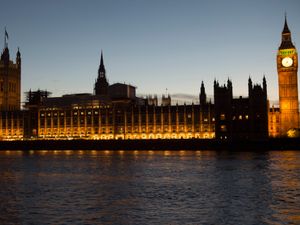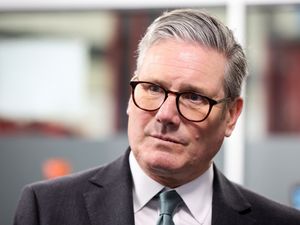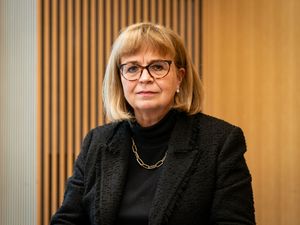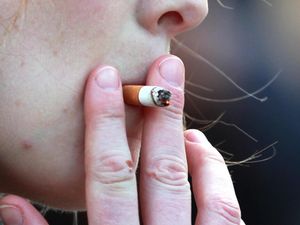Parents say findings of new inquest into baby’s death ‘everything we fought for’
Ben Condon’s parents have spent 10 years fighting for answers about his death.
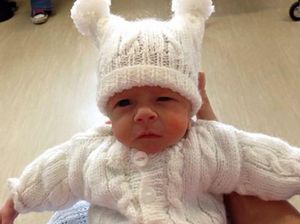
Parents who have spent a decade campaigning for answers about their baby’s death have described a coroner’s findings at his second inquest as “all we ever wanted and everything we have fought for”.
Allyn and Jenny Condon’s son Ben, who was born prematurely, died in the intensive care unit of Bristol Children’s Hospital on April 17 2015, six days after being admitted there with a respiratory illness.
An inquest at Avon Coroner’s Court in June 2016 recorded Ben’s death as being caused by acute respiratory distress syndrome (ARDS), metapneumovirus (hMPV) and prematurity.
But the following year, University Hospitals Bristol and Weston NHS Foundation Trust admitted a failure to give Ben timely antibiotics for a pseudomonas bacterial infection had contributed to his death.
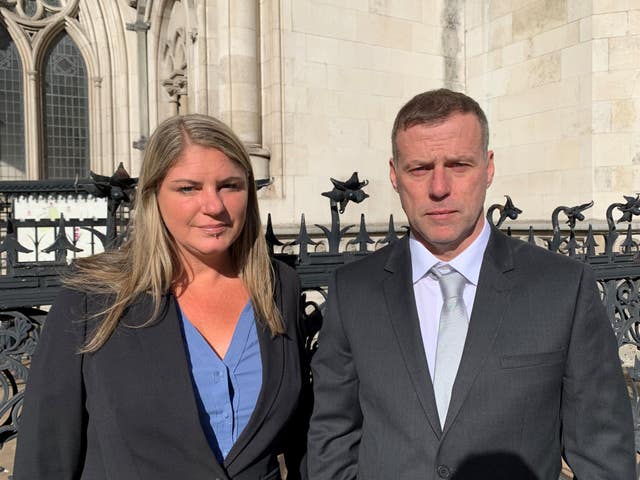
The legal fight by Ben’s parents led to High Court judges quashing the original inquest conclusion in 2021 and ordering a fresh hearing, which has been taking place at Avon Coroner’s Court over the past three weeks.
On Friday, Robert Sowersby, assistant coroner for Avon, reached a number of damning conclusions about the care Ben received and found that the bacterial infection had been a cause of his death.
Mr Sowersby recorded a new cause of death as acute respiratory distress syndrome (ARDS), pseudomonas bacterial infection, metapneumovirus (hMPV) and prematurity.
The coroner also found that the administration of surfactant – given to assist Ben’s lungs – contributed to the baby developing an air leak into his pericardium and then suffering a cardiac arrest.
He criticised the “patronising” approach of Bristol Children’s Hospital towards Ben’s parents and said it was “manifestly wrong” they were not informed or consulted about procedures that carried risks to their baby.
Speaking after the conclusion, Ben’s parents said: “We would firstly like to thank the coroner for doing such a thorough review of Ben’s case, a basic human right we should have been afforded a decade ago.
“As a family we have been silenced, stonewalled and gaslighted by University Hospital Bristol and Weston Trust. The trauma we have faced as a result of their conduct is indescribable.
“We are grateful that the trust stands by their position that their failure to prescribe earlier antibiotics contributed to Ben’s death and that on the balance of probabilities, had they treated him with antibiotics earlier, he would have survived.
“Today, the coroner has included the pseudomonas bacterial infection and the impact of surfactant on Ben’s cause of death, which is all we ever wanted and everything we have fought for.”
The Condon family added that they had hoped the hearing “would bring an end to all our unanswered questions” and enable them to begin rebuilding their lives.
However, during the inquest a document appeared to suggest that four swabs were taken from Ben’s body and sent for tests on April 18 and 19.
This was despite Ben’s parents being assured that there was no need for their baby to undergo a post-mortem examination, leading to his body being cremated.
They added: “We will be contacting the General Medical Council and the Human Tissue Authority to trigger the process for a potential criminal investigation under the Human Tissue Act 2004.”
“We will continue to fight until we are sure no other family will have to face the irreparable pain and suffering we have had, and are still having, to endure.”
Mary Smith, of New South Law, which represented Ben’s family, said a coroner’s court was not able to address concerns about the swabs.
Ben was born in February 2015 at 29 weeks gestation and spent seven weeks in neonatal intensive care at Southmead Hospital before being discharged home to Weston-super-Mare, Somerset, on April 7.
His parents took him to Weston General Hospital on April 10, after he became unwell following cold-like symptoms, and he was transferred to Bristol Children’s Hospital the following day.
During the inquest, his parents described how Ben’s temperature kept falling below targeted levels and he was frequently hypothermic.
The coroner said: “The fact that a seriously unwell baby was allowed to drop well below a targeted temperature seems to me to be significant.”
He added that he could not conclude that this, or the management of Ben’s ventilation, contributed to his death but was “still a concern”.
Mr Sowersby referred to the evidence of three consultants, Dr James Fraser, Dr Suzanne Dean and Dr Matthew Christopherson, who treated Ben.
“I could not help feeling that Dr Fraser, along with Dr Dean and Dr Christopherson, was not doing all he could to assist me in reaching objective assessment of Ben’s clinical course,” he said.
Mr Sowersby added the overall picture of Ben’s care suggested “that the consultants looking after Ben didn’t realise quite how unwell he was until it was too late”.
The coroner said the decision to give Ben a third dose of surfactant on April 17 carried “significant potential risks” but was not discussed with his parents, which he described as “manifestly wrong”.
He said: “This was part of what seems to me to be a patronising approach to Ben’s parents in which they were not told what was going on, or why, and nor were they included in decisions around Ben’s treatment.”
Mr Sowersby added that there was an “unacceptable delay” in giving Ben antibiotics prescribed on the day of his death.
He also criticised the communication with Ben’s parents, who were told at 6.30pm that day that their baby may not survive.
“It is very hard for me to understand how it could have taken this long for them to have been told this stark fact,” he said.
Ben, who weighed just 5lbs, was pronounced dead at 9.07pm on April 17.
After reading his conclusion, Mr Sowersby said the distress of Ben’s parents had been “exacerbated” by the actions of the trust but there was not a “trust-wide conspiracy to deceive”.
“I hope Ben’s family can take some element of pride in what they have achieved in their battle for the truth,” he added.
“Perhaps most important of all the changes the trust has made in recognition of the areas where they didn’t care for Ben as well as they should have.”
In a statement issued following the inquest, Professor Stuart Walker, University Hospitals Bristol & Weston NHS Foundation Trust hospital managing director, said the trust was “deeply sorry” that Ben died while in its care and for how it communicated with his family after his death.
“We have undertaken significant learning and reflection in the 10 years since then,” Prof Walker said.
“We accept the conclusion of the assistant coroner, and I would again like to acknowledge the distress experienced by Ben’s family.”


